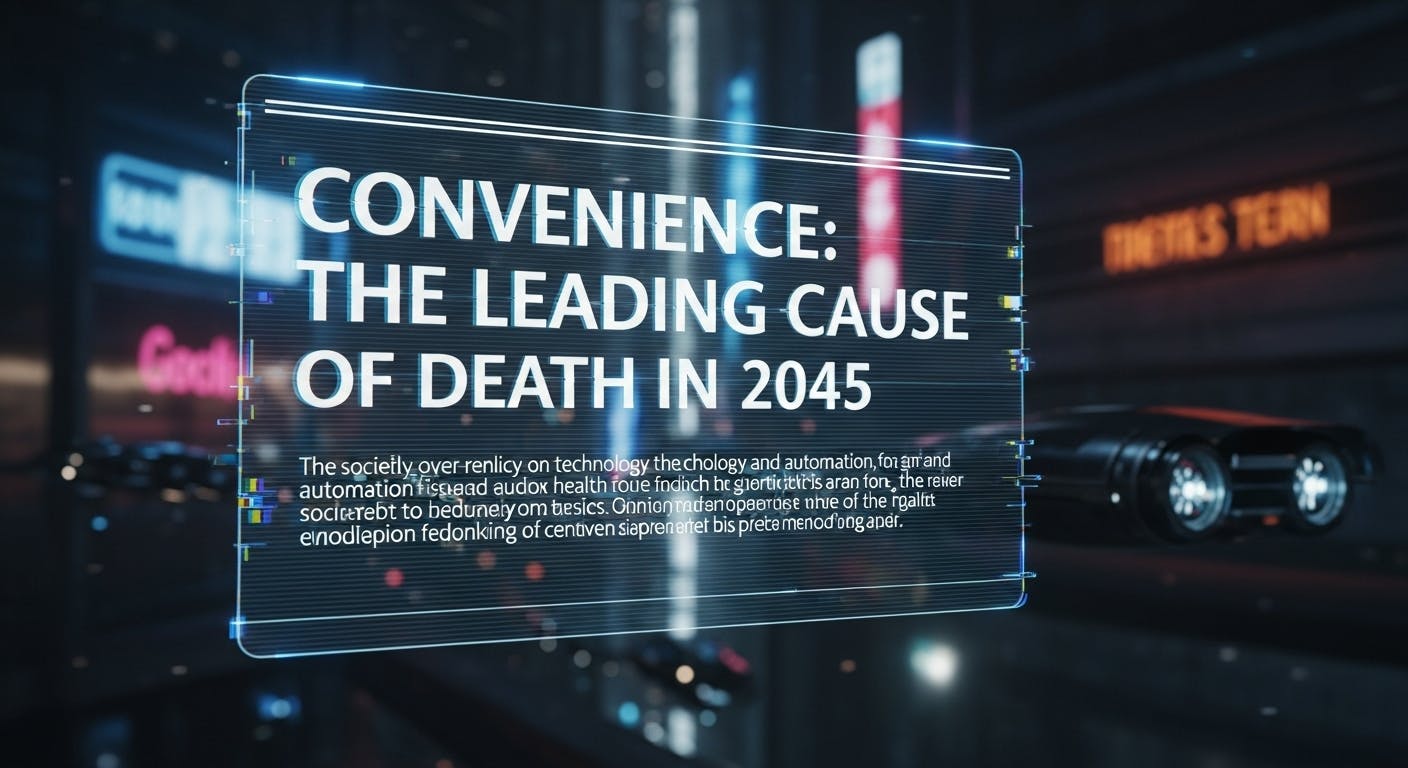I was born in '88, back when phones had cords and patience was mandatory. You wanted to talk to someone? Pick up the receiver, listen to the dial tone, carefully twist the rotary dial, and hope you didn't misdial. The pinnacle of tech back then was borrowing change for a payphone or memorizing a neighbor's number. Thrilling stuff.
I remember life before computers and cell phones—barely, but I do. A time when convenience meant knowing your neighbor, keeping a paper map in the glove box, or flipping through thick paper phone books. It was slower, imperfect, human.
Fast-forward a decade or so, and cell phones appeared. Big, brick-like miracles that somehow made life feel smaller, faster, and, honestly, slightly terrifying. Then came smartphones, apps, notifications, and the endless ping of connection. Now convenience means tapping a screen. Groceries at the door, directions recalculated in real time, answers from a glowing rectangle before you even finish the question.
And I'll be honest: I like it. I use it. I push it. My work depends on tech, and I get a kick out of new gadgets and digital tools. Almost every industry—from healthcare to grocery stores—relies on systems I helped learn to love. I'm not just a consumer; I'm part of the machine. And yet, the more I embrace it, the more surreal it all feels.
But lately, it's started to feel different. More sinister. Like a charming but sly roommate who rearranges your furniture while you sleep. Less like innovation and more like control dressed up as progress. Every app, every device, every "agree to terms" isn't just about making life easier—it's about collecting pieces of us. Our habits, our movements, our relationships, our desires. Convenience is the bait. Data is the catch. Convenience has become the leash.
The deeper I got into cryptocurrency, decentralized finance, and governance, the more clearly I saw it. Tech isn't just neutral infrastructure. It's shaping power, shaping society, shaping what it even means to be free. And the trade we're making for comfort is bigger than most people realize.
And here's the kicker: I think I might be the exact generation historians will blame. One day, future humans will squint at the past and mutter, "Wait, what were y'all doing? Did you not see this coming?" We grew up analog, built the digital, and loved it so much we barely noticed the trade-offs: patience, privacy, independence, the occasional "just sitting and thinking" moment.
Ten, twenty years down this road, what does life look like? Maybe we won't own our devices—maybe they'll own us. Maybe we'll forget how to function without being connected. Maybe algorithms won't just recommend what we watch or buy, but quietly nudge how we think, who we trust, and what we believe. Convenience will have become dependency. Dependency will have become obedience.
That's what keeps me uneasy. Kids growing up now may never know what it's like to be unreachable. To sit in boredom long enough to create something. To solve a problem without googling it. To have privacy that isn't conditional. Those muscles—patience, resilience, curiosity—atrophy fast when every need is instantly answered.
And here I am, stuck in the contradiction. I love tech. I need it. I build with it. But I also feel the bars closing in, disguised as sleek updates and seamless integrations. Every gadget I use, every workflow I streamline, every convenience I celebrate comes with a tiny pang of guilt. It's not yet a dystopia; it's a slow creep. The hum of progress is seductive. I push tech forward, I work with it, I marvel at it—but sometimes I swear I can feel it eyeing me like, "Soon..."
We're walking into a digital cage, and the scariest part is how comfortable it feels inside. The digital cage isn't coming; it's here, one seamless integration at a time. And the humor—or maybe tragedy—is that I'm helping build it, probably while laughing at a meme about someone else trapped inside it.
The future doesn't arrive all at once. It creeps in through convenience. The question isn't whether tech will define the next twenty years—it will. The question is whether we'll still recognize ourselves when it does.


